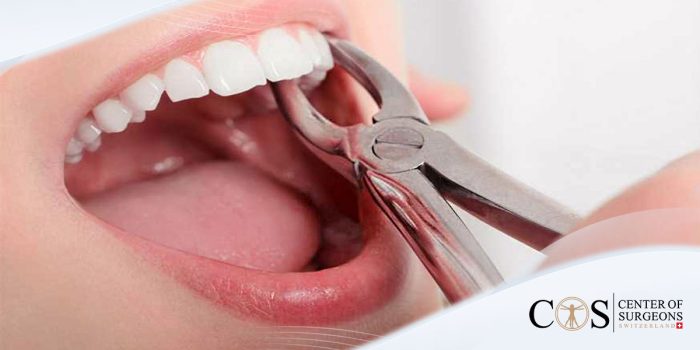What is tooth extraction?
Tooth extraction is the name given to the removal of a tooth due to discomfort or problems with the tooth. If the tooth cannot be saved by fillings, root canal treatments, or crowns, it may be decided to extract it. The tooth is surgically removed from the tooth socket, which is the cavity in the bone that holds the tooth. Depending on the situation, local, general, or intravenous anaesthesia may be administered prior to extraction. Tooth extraction, which many people are afraid of, is not as scary as it seems. It is a quick procedure that is performed while the patient is in sitting position.
Why are teeth extracted?
Teeth can be extracted for various reasons. Usually, tooth extraction is performed when the tooth is no longer functional for the patient. Tooth extraction may be decided in the following cases:
-When the tooth cannot be saved with fillings, crowns, or root canal treatment after tooth decay occurs,
-When the dentist considers it necessary for orthodontic treatment,
-When partially erupted or impacted teeth cause decay, pain, or abscess formation,
-When there are deciduous teeth that do not fall out when they should,
-When there are teeth causing cyst or tumor formation,
-When there are broken teeth,
-When incorrect treatment has been applied to the tooth,
-When there are some cosmetic concerns,
-When there is periodontal disease and loss of supporting tissues around the tooth is observed, tooth extraction may be decided.
Tooth extraction is a procedure used as a last resort when the above-mentioned conditions occur. The available treatment procedures are evaluated, and the most suitable treatment for the patient is decided. If the treatment is not successful, tooth extraction is performed.
Before Tooth Extraction
During the examination, the patient should share their medical history with the dentist. In addition to taking medications and supplements, if the patient has experienced diseases such as heart valve, congenital heart defect, impaired immune system, or liver disease (cirrhosis), they should inform their dentist. There may be an infection in the gum tissue. The dentist may start antibiotic treatment for tooth extraction and afterwards if necessary.

How is a tooth extraction done?
Tooth extraction should be performed by trained professionals. The area where the tooth is to be extracted is locally anesthetized. General anaesthesia can also be used in cases such as impacted wisdom teeth. A patient under general anaesthesia will sleep during the procedure. Once adequate numbness is achieved, the dentist cuts the bone tissue and uses a special tool called forceps to move the tooth back and forth, removing it from its socket.
How long does a tooth extraction take?
If no surgery is required for the tooth extraction, the procedure can be completed within 15 to 20 minutes. If multiple rooted teeth need to be extracted, the procedure may take slightly longer. If surgical intervention is required, it will take longer.
What should you consider after a tooth extraction?
-After extraction, pressure should be applied to the extraction site with a tampon for a while. This application stops the bleeding, promotes the formation of blood clots, and helps the area fill with bone over time.
-Nothing should be eaten until the numbness in the teeth has subsided. Avoid drinking very hot or cold beverages afterward. It is recommended to eat soft foods for a few days.
-Cold applications should be done intermittently after tooth extraction.
-Smoking and alcohol consumption should be avoided for 3 days after tooth extraction.
-The extraction site should not be touched with the tongue or any other object, as this may lead to the formation of a blood clot, delayed healing, and infection.
– You should not rinse your mouth vigorously for the first 24 hours after your tooth extraction.
-Instead of brushing your teeth after tooth extraction, it is recommended that you gargle with salt water.
-It is normal to feel pain after a tooth extraction. However, if the pain cannot be relieved with painkillers and causes insomnia at night, you should consult your dentist.
When will the wound from tooth extraction close?
The healing time for a wound after tooth extraction varies from person to person. The size of the wound and the healing rate of the individual may differ. On average, the wound heals within 7 days of extraction, but for complex tooth extractions, it can take up to 3 weeks.
How can you overcome your fear of tooth extraction?
Dental anxiety is a common problem for many people. The fear can cause a person to neglect dental treatment, which leads to bigger problems. Therefore, it is necessary to overcome this fear. This requires a detailed discussion with your dentist. Your dentist can help reduce your anxiety. The dentist can explain to you the procedures to be performed. By learning about the treatment to be performed, you can overcome your fear. Trusting your dentist and having healthy communication with him or her are important to overcoming your fear.

